We asked some of Chicago’s best private schools to tell us what they offer and how they can help your kids learn. Here’s what they had to say:
North Shore Country Day

What is your school’s academic philosophy?
When we were founded in 1919, North Shore Country Day was the visionary answer to a fundamental question: What matters most when educating a child? Since then, NSCD has refined its answer to propel the school’s educational model forward with purpose and passion, building a transformative JK-12 community on four essential pillars: Connecting: Constantly building bridges within and beyond our diverse JK12 community helps us understand ourselves, each other and our world. Challenging: Truly knowing our students allows us to challenge and support them as individual people and learners. Engaging: There are no spectators at NSCD. Active participation in academic, artistic, athletic and service activities promotes the adaptive intellectual and emotional skills we value. Exploring: We push our students to participate widely and take risks regularly, ensuring they stretch, explore, stumble and grow. In doing so they discover their passions and strengths, developing critical skills that carry them successfully into college and beyond.
Please describe your curriculum.
At North Shore Country Day, we take pride in offering a well-rounded, skills-based education to students in junior kindergarten through 12th grade. Students are asked to apply their knowledge through a range of assessments and projects developing strong analytical thinking, communication and creative problem-solving skills. While our program is challenging and college preparatory in nature, an emphasis on co-curricular participation in the arts, athletics and service to others ensures students explore their full selves.
How does your school support individual learning needs?
NSCD’s emphasis on relationships fosters strong student and teacher collaboration, and school and home partnerships. Small class sizes allow for all students to be known as people and as learners and our faculty strive to differentiate their work within classes. When the learning needs of students require more direct attention, students work with our learning resource teachers. The main focus of their work is supporting students who have learning differences, and promoting their learning through curricular and organizational support. Most of this work is on an individualized basis in a one-to-one setting. Our lower school learning specialists also provide small group support, both in and out of the classroom. North Shore Country Day charges a fee for individualized support from the learning specialists, for which financial aid may be available. Students may be referred for support by teachers, advisors, parents or therapists. Learning specialists focus on helping students understand their strengths and challenges, remediate their challenges and support their strengths, develop their executive function skills and hone their self-advocacy skills.
What extracurricular activities do you offer?
Athletics has been an integral part of the NSCD experience since the school’s beginning in 1919. Founding Headmaster Perry Dunlap Smith believed a school should require its students to exercise both mind and body. Therefore North Shore has always had a strong, diverse athletic program. Students play sports every school day throughout the year. Participation in athletics is required from sixth through 11th grades.
Sacred Heart School

What is your school’s academic philosophy?
Sacred Heart guides our students toward lives of purpose and meaning through an education that harnesses the power of both their minds and their hearts. Each student’s learning needs are continually addressed, as they learn to think critically and creatively, to work collaboratively, and apply knowledge and skills from varied disciplines within and beyond the school. Our students graduate from our PK-8 program with the confidence and competence to take their place in the city’s best high schools and with a sense of compassion and commitment that allows them to make a positive impact on their communities throughout their lives. Our students are guided by faith, passionate
about learning, committed to justice, engaged in their community, and dedicated to personal growth.
Please describe your curriculum.
Sacred Heart’s curriculum is research-based, future-focused, grounded in our mission, and designed to challenge and inspire each student as they grow and learn within a nurturing environment. Our core curriculum focuses on language arts, math, science and social studies; children also study French, Spanish, art, music, physical education and religion. Technology is integrated throughout the curriculum to support and enhance learning. Students also benefit from our small class sizes and low student-teacher ratio—ensuring they receive personal attention and feel known and valued by their school community.
How does your school support individual students’ learning needs?
Teachers at Sacred Heart know well that every child comes into the classroom with a range of abilities, strengths and areas for growth. Differentiated instruction allows us to celebrate a diversity of learning styles through whole-class, small-group, and one-on-one teaching. Whether a student is gifted in a particular area or challenged, teachers and staff—including teaching assistants, learning specialists, reading specialists, a math specialist, and an enrichment coordinator—collaborate to determine how best to support and enrich that student’s learning.
What extracurricular activities do you offer?
Our Student Life programming at Sacred Heart helps students discover their passion, gain confidence, and have fun! Throughout the year, Sacred Heart offers nearly 40 different special interest clubs and academic enrichment classes after school. More than half our students participate in after school extracurricular programs, which range from jazz dance to book club, from chess to robotics, from cooking to debate team. Athletics are also an integral part of the Sacred Heart experience. More than 50 sports teams are offered, including baseball, basketball, crosscountry, flag football, golf, softball, track and volleyball. Students, parents, faculty and coaches all share in our community’s vigorous team spirit. And we have more than a few trophies and conference championships to show for our effort!
Rose Hall Montessori
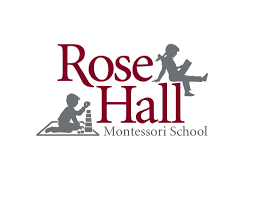
What is your school’s academic philosophy?
As a Montessori school, Rose Hall begins teaching from the foundation of Dr. Maria Montessori’s educational philosophy established over 100 years ago, emphasizing the individual needs of the child, freedom of movement, hands-on learning, and the core principles of what we now call executive functioning. Rose Hall also has a deep commitment to nurturing peace, compassion, empathy, and love in our students. It is part of our foundational values and at the core of what we do every day.
Please describe your curriculum.
Drawing from Dr. Montessori’s work and the Montessori tradition, our curriculum follows the areas of Practical Life, Sensorial, Math, Language, and Cultural, as well as daily art and manipulatives. The children have the freedom to choose the materials they would like to work on each day, moving through the curriculum at their own pace, gently guided by their teachers, in a sequence that builds upon previous learning towards higher academics and more abstract concepts. At the core remains the ideal of helping each child develop a strong sense of themself as a learner, with the necessary skills to engage in any future classroom, such as order, concentration, independence, and fine and gross motor.
How does your school support individual students’ learning needs?
Given that each child has the freedom to enter the classroom everyday and engage with the materials that they are interested in, the teachers are able to meet them exactly where they are. Our teachers utilize an online tracking system to monitor where each child is in each curricular area, taking note of which material they work on, how they use it, what they say about it, and with whom they work. They plan lessons for the next days and weeks based on these notes which are individualized for each child. If a child is interested in dinosaurs and is working on social skills, we can help facilitate a successful interaction between that child and an older child, around the Cultural materials, Parts of Stegosaurus or Types of Sauropods. Some children will move quickly through language or math but need support in fine motor or social skills. Others will love to work with a friend but may need encouragement to tackle sounds and symbols. Each child is met exactly where they are.
What extracurricular activities do you offer?
Our program hosts yoga and French lessons during the day for our preschool and Kindergarten Enrichment students. We also offer an extended day Lunch Bunch program for both of these programs.
Our Lady of Perpetual Help
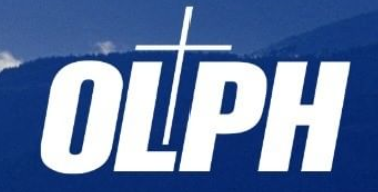
What is your academic philosophy?
OLPH School is dedicated to designing an individualized program of success for each child. Careful structuring of classes allows for every child to be known and loved, while providing a range of learning opportunities in academics, visual and performing arts, athletics, service, and leadership.
Please describe your curriculum.
In every grade, we foster the growth and development of the whole person. Religious education and its formation of young, engaged Catholics is the foundation of our parish school. OLPH School is dedicated to designing an individual program of success for each child. These learning experiences include opportunities to challenge and enrich talents, strategies to compensate for weaknesses, and programs designed to give children the skills to succeed. Core curriculum subjects include Religion, Reading, Math, Language Arts, Social Studies, Science, and Spelling. Additional special subjects including Spanish, Music, Art, and Physical Education complement the core curriculum.
How does your school support individual students’ learning needs?
Learning Development, Speech and Language, and Social – Emotional Services are available to children who may require attention in these areas. OLPH provides on-site educational support in reading and math. Speech pathologists, reading specialists, learning disability teachers, and a school counselor are on staff full-time to provide assistance for those who may need help in these areas.
What extracurricular activities do you offer?
After School Clubs, Choir, Band, Sports, Musicale, Variety Show FALL-Soccer (co-ed), Cross Country (co-ed), Football, Girls Volleyball and Cheerleading INTER-Basketball and Warriorettes. SPRING-Track (co-ed), Golf (co-ed), Lacrosse (boy & girls teams), Boys Volleyball.
Florence Heller School

What is your academic philosophy?
At JCC Chicago Early Childhood, there is a deep understanding that children, from the youngest age, are capable of extraordinary things. We provide the foundation for children to develop and grow while bringing Jewish values to life. It is our passion and privilege to provide your precious children with opportunities, love and support while nurturing their skill development.
Please describe your curriculum.
Using the Reggio Emilia approach to discovery-based learning, each classroom emphasizes experiential learning, child-led curriculum and hands-on experiences to focus on the whole child. Our educators create rich environments that set the stage for exploration, problem solving and creative play. While utilizing our indoor or outdoor classroom spaces, we inspire a love of learning through our play-based educational philosophy. We foster critical thinking that will facilitate success in learning throughout their lives.
How does your school support individual learning needs?
Our warm and nurturing educators build relationships individually, one child at a time, and are intimately familiar with their academic and socio-emotional development. Strong trusting relationships give children confidence and build self esteem. A defining and essential component of our program is our Social Services Team, who are dedicated to partnering with parents and educators to help each child realize his/her potential as they become part of their classroom community.
What extracurricular activities do you offer?
We offer enrichment opportunities including our innovative University of Illinois accredited JCC Chicago Physical Literacy Program for preschool-aged children. Additional offerings include music, art, cooking, movement, STEM and more! Classes are taught by trained specialists. Enrichment offerings vary by location.
Countryside Day School
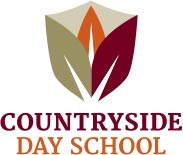
How Countryside Day School and Montessori Offer a Unique Family Experience Our classrooms are carefully prepared by Montessori teachers to provide activities for your child at each developmental level. We follow the Montessori philosophy of learning, as taught by Dr. Maria Montessori. All teachers hold diplomas from the Association Montessori Internationale. A classroom experience at CDS is an “internship to adulthood” that will encourage your child to become more than a great student but also an exceptional adult with a strong sense of agency and empathy. This is accomplished by:
• Providing classrooms that closely resemble real life with collaborative work, mixed age groups, opportunities for failure and repetition to achieve earned success, real challenges to overcome, accountability for choices and time management, student teaching and mentoring, self-directed learning, and important activities that contribute to the well being of the community.
• Allowing your child to experience the learning based on his/her interests.
• Providing curriculum that places a strong emphasis on academic rigor. Countryside’s curriculum covers all domains that conventional schools include, but place an added emphasis on the development of strong character.
Countryside’s mission is to work in partnership with families to help students as they develop the qualities of respect, responsibility and resourcefulness. In fact, we often think of school as an “internship to adulthood.” And our classes are designed to model real life as much as possible giving students extensive practice with critical life skills. This attention to the development of character fosters stronger learners who are able to achieve their highest academic potential. Because students work independently and in small groups, teachers allow students to work at their optimal pace. If a student needs more repetition to learn a concept, she can do more work without being “left behind.” If a student has a strong high aptitude for a subject, she can move at a faster pace. This methodology allows Countryside to serve a great diversity of different learners seamlessly. COVID restrictions limited Countryside’s extra-curricular activities last year, but they are exploring a collaboration with Bach to Rock in Northbrook to offer group music lessons and may reinstate some classes including Spanish and gymnastics. Elementary students also perform annually in a student opera.
St. John’s Northwestern Academies(boarding school)
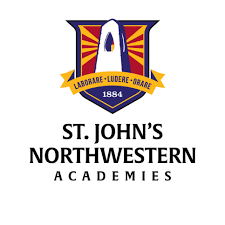
What is your school’s academic philosophy?
St. John’s Northwestern Academies’ academic philosophy is excellence for life! Small classes. Hands-on learning. Individual guidance. It’s all here, along with Advanced Placement, Honors, and dual college credit classes. Personal college coaching helps our students explore options and make choices now to support their dreams for the future.
Please describe your curriculum.
We develop innovative, curious, and resourceful students by providing a college preparatory foundation while encouraging them to become lifelong learners. Academic excellence is a centerpiece at SJNA! Diploma options include STEM Honors, Humanities Honors, and standard high school diplomas. High-achieving students receive Dean’s List and Dean’s List with Honors distinctions, academic stars and ribbons, and induction into the National Honor Society or National Junior Honor Society. Students may also qualify for the Spanish, German or Chinese honor societies as well as the National Art Honor Society. We believe in the power of hands-on, experiential learning. Students broaden their knowledge and horizons outside the classroom through field trips, local excursions, service trips, and study abroad.
How does your school support individual learning needs?
Academic support starts the moment your child arrives on our campus with supervised evening study and a structured, award-winning peer tutoring program. Every course is presented in a small-group setting with an average class size of 11, and a student-teacher ratio of 6:1. Dedicated faculty direct productive classroom interaction and provide individual attention to guide students to subject mastery. Highly motivated students may take above grade level honors classes,. And, our Armer Family Learning Commons offers students an open-concept, flexible study space. It is home to the library, the Totzke Learning Center, and IT Help Desk.
What extracurricular activities do you offer?
Extracurricular options include Football, Cross Country, Soccer, Basketball, Swimming, Wrestling, Co-Op Hockey, Track & Field, Baseball, Tennis, Golf, Lacrosse, Trap Team, Kickball, Dodgeball, Ultimate Frisbee, Softball, Floor Hockey, Flag Football, and Badminton.
Christian Heritage Academy
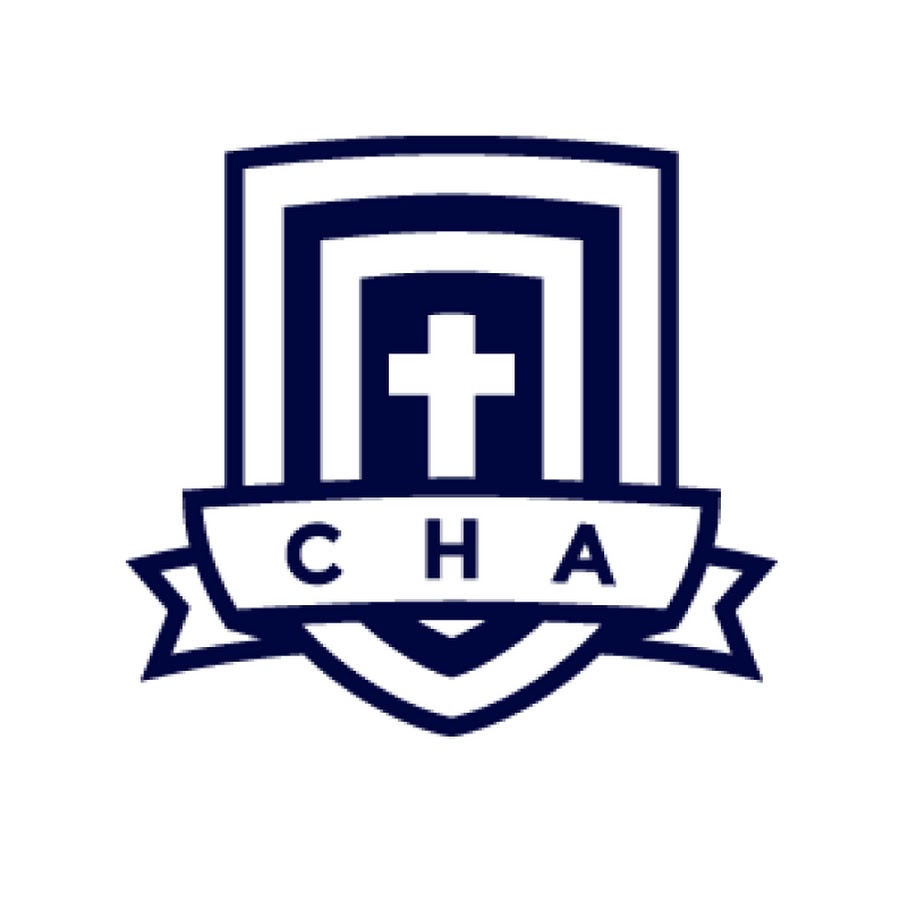
What is your school’s academic philosophy?
Since 1984, Christian Heritage Academy has partnered with thousands of Christian families and churches in the Chicagoland area, equipping students to be lifetime learners and followers of Jesus Christ. With carefully chosen curriculum and resources for Preschool through Grade 12, we build upon a biblical foundation with a rigorous and robust education, nurturing a lifelong love of learning and intellectual discovery–solid preparation for college and for life.
Please describe your curriculum.
Our Early Education programs use developmentally appropriate pedagogy and Christian curriculum to foster a love of learning and sense of wonder in creation. Our commitment to academic excellence in Lower School postulates a foundational framework of critical thinking and communication skills. Our Middle and Upper Schools provide a rich, college-preparatory experience to expand each student’s intellect and heart. Our curriculum empowers students to exercise advanced critical thinking skills as they develop their gifts and talents to make a positive impact on the world.
How does your school support individual learning needs?
It starts with the dedicated teachers who integrate their educational expertise with their love for the Lord–what we call “Living Curriculum” teachers. These women and men are committed to knowing each student, understanding their uniqueness, praying for them, and helping them grow in wisdom and knowledge. For those who may need additional support and tools, we connect them with Learning Resources specialists in Early Education through Upper School.
What extracurricular activities do you offer?
Students at CHA have the opportunity to participate in multiple and a wide variety of extracurricular activities, whether service learning projects, IHSA sports, the National Honor Society, choirs, instrumental groups, prayer, art, theatre, technology, yearbook, and more. We encourage students to propose new clubs according to their interests!
Rochelle Zell Jewish High School
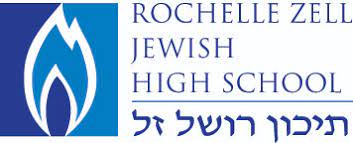
What is your school’s academic philosophy?
Rochelle Zell Jewish High School creates a culture of academic excellence that inspires and prepares our students to think critically, achieve their full potential, and live Judaism as responsible and involved citizens. We believe students are multi-dimensional human beings. The relationships that form between teachers and students contribute to students’ confidence in their abilities to advocate for themselves and for others, in college and beyond.
Please describe your curriculum.
Rochelle Zell integrates the Jewish Studies curriculum with the sciences, humanities, and the arts. The learning environment emphasizes creativity and critical thinking in both general and Jewish studies classes and the ability to question is embraced and valued. Students take general studies classes with their grade-level peers. Jewish Studies classes are tracked by Hebrew language level and ability to interpret texts. Rochelle Zell Jewish High School makes Talmud/Torah study accessible to all students by offering classes instructed in both Hebrew and English.
How does your school support individual learning needs?
The mission of Rochelle Zell Jewish High School’s Student Services Department is to create an environment that meets the needs of students who have identified learning disabilities by providing them with accommodations throughout their academic program. Our Student Services Department can assist in identifying public and private resources and the Student Services Team will determine what accommodations we can provide to address each child’s needs. After a child is registered, a Service Plan (Accommodation Plan) will be written and put in place to afford student classroom accommodations across the curriculum.
What extracurricular activities do you offer?
Student life at Rochelle Zell is full of spirit and a sense of community. Clubs include Art Club, Engineering, Environmental Club, Math Team, Mental Health and Awareness, Pride, Spirit Club, Spring Musical, and more. Most of our students participate in athletics, which is an integral aspect of the Rochelle Zell Jewish High School experience. Athletes are challenged to strive for excellence, learn self-discipline and attain a strong work ethic that helps in athletics, the classroom and community.
The Cove School

What is your school’s academic philosophy?
Cove’s academic philosophy is grounded in a highly individualized and student-centered approach to providing education for students with complex learning disabilities. With thoughtful consideration of a student’s goals and hopes for the future, our talented and experienced academic and clinical teams set rigorous and attainable benchmarks and provide targeted interventions that help our students succeed.
Please describe your curriculum.
Cove offers a dynamic and responsive curriculum based on the profile of strengths and needs of each of our students. Cove School embodies an academic environment with opportunities for all students; a learning culture that promotes creativity, innovation, and problem solving; and a curriculum established on high expectations and skills students will need after Cove. Research-based strategies such as Orton-Gillingham literacy and Concrete, Representational, Abstract (CRA) math guide students to build understanding by connecting ideas across disciplines.
How does your school support individual students’ learning needs?
Cove’s academic and clinical teams work collaboratively with students, families, and home districts in order to develop programming that will support students in achieving their goals. By offering a number of researchbased programs and interventions that are individualized for each student, interdisciplinary teams are able to work collaboratively to monitor progress, review data, and make changes to programming as needed.
What extracurricular activities do you offer?
Cove works to provide the most robust extracurricular program possible to create opportunities for social development and to encourage growth in their areas of interest. From academic coaching and homework help, where students receive a safe, supportive, and productive space to receive academic support, to a student-run and staff supported Gender and Sexuality Alliance, Cove students receive a range of options facilitated by our highly qualified and enthusiastic staff. Offerings include creative arts, sports (Special Olympics), technology, and community philanthropy.
Lake Forest Country Day School
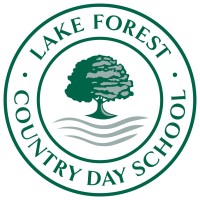
What is your school’s academic philosophy?
LFCDS takes a holistic approach to learning that nurtures intellectual growth along with social and emotional development. This focus on the whole child translates to students achieving an understanding not only of who they are in the classroom, but also a keen awareness of who they are as a member of a community and in their relationships. LFCDS offers a rigorous academic program, but one that recognizes rigor means something different to each student. Central to the LFCDS philosophy is knowing and loving our children, and the school’s enrollment allows small classes that support individualized learning.
Please describe your curriculum.
LFCDS is a 130-year-old school founded with a forward-leaning orientation learning. Many curricular and programmatic elements boast progressive, 21st century leaning components: a 2,8000-square-foot Innovation Lab, multiple outdoor classrooms and labs, a social-emotional learning framework adopted schoolwide, a 1:1 student device program in the Upper School. Those qualities are balanced with traditional characteristics, such as a liberal arts focus to integrate multiple disciplines into student learning as well as emphasis on executive functioning and public speaking skills. This approach creates a balanced, yet dynamic, learning environment.
How does your school support individual learning needs?
Size facilitates everything at LFCDS. Classes feature anywhere from 12-15 students which, as a baseline, allows teachers to reach students on a personal level. Beyond that, LFCDS maintains an in-house Learning Development team to provide direct, one-on-one instruction for students who require ongoing support.
What extracurricular activities do you offer?
Lots. And what’s great about LFCDS is that we build what would normally be considered “extra” directly into our core program. For example, Upper School students participate in a required athletics program that builds practices into the academic schedule. The school also maintains a choral program and orchestra that is popular with students across the Upper School.
Brightmont
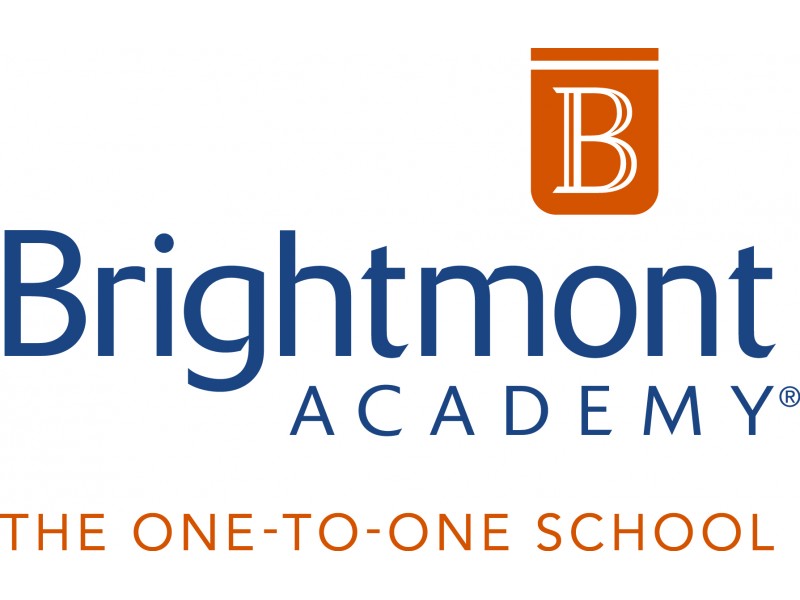
What is your school’s academic philosophy?
We have a one-to-one instruction model. Every session is one student to one teacher. Students are in individual classrooms with their teacher. This limits distractions and allows for a safe and nurturing environment. We follow a mastery based learning approach. This means the student masters the concept before moving on to the next. The benefit is that we are able to speed up or slow down and can ensure that the student truly understands the material.
Please describe your curriculum.
We are accredited by AdvancED and other independent organizations and our curriculum includes all required 6th 12th grade courses in math, science, language arts and social studies. We can offer elective courses at all levels of rigor ranging from standard high school level college prep curriculum to Honors courses and Advanced Placement. Students from 6-12 grade can do full time school or individual courses for credit. For all K-12 students we also offer tutoring and skill building classes in reading, writing, math and executive functioning. We even have a reading intervention program.
How does your school support individual students’ learning needs?
Because we offer one-to-one instruction we can meet the student where they are. Our teachers develop strong relationships that allow for immediate feedback and adjustment in each lesson. Because our teachers get to know the students individually, they incorporate the student’s interests into class lessons leading to more engagement and creating a more confident student. We can help students who have learning difficulties and those want to advance quickly.
What extracurricular activities do you offer?
Because our No. 1 focus is academic success and we employ one-to-one classrooms we generally do not have extra curricular activities on all campuses. Northfield and Barrington opened late 2020 so we do not have as many students on these campuses as other campuses around the country. Locations with more students on campus have the ability to offer extra curricular activities and/or clubs as requested by students. In some cases students request specific activities and in other cases teachers come up with ideas based on what interests they see among the students.

